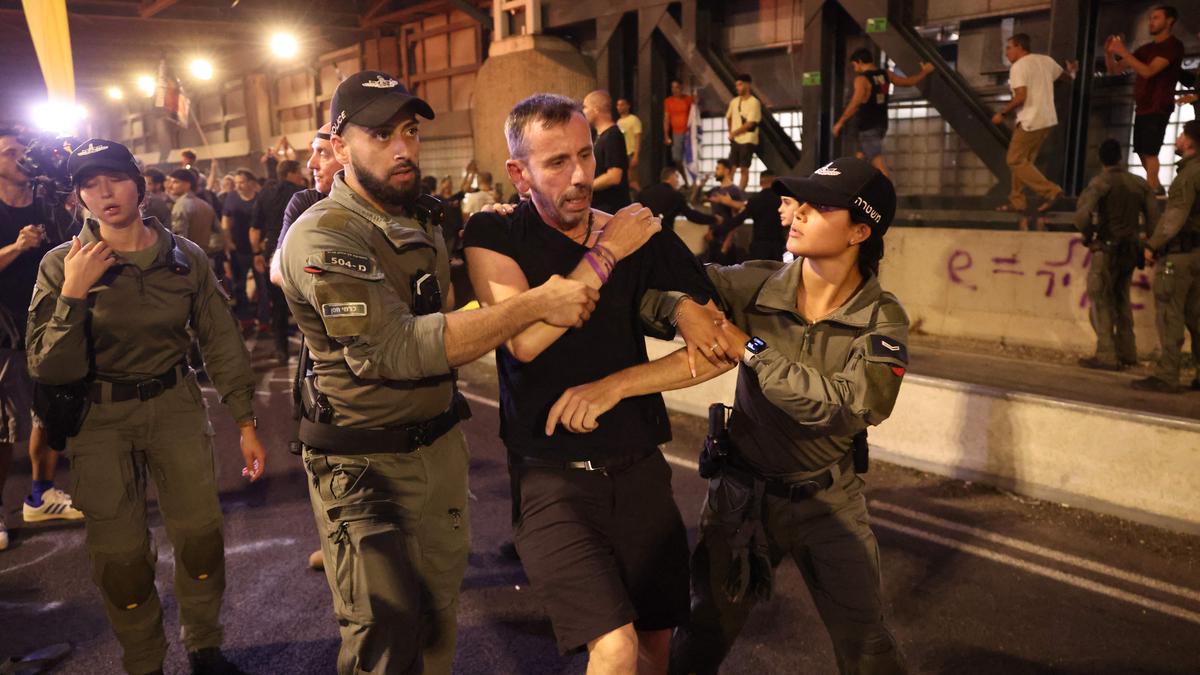The recent escalation of conflict between Israel and Hamas, marked by the ongoing war in Gaza, has thrust the region into a deeply polarized state. The conflict has resulted in a wave of public protests in Israel, with thousands demanding action from their government to secure the release of hostages held by Hamas. Amidst this turbulent backdrop, U.S. President Joe Biden has voiced his concern over Israel’s negotiation efforts, adding pressure on Israeli Prime Minister Benjamin Netanyahu to reach a ceasefire agreement.
The Impasse and the Public’s Outcry
The prolonged conflict, nearing its 11th month, has yielded little progress toward a resolution, exacerbating the sense of frustration and despair among many Israelis. The tragic discovery of six more hostages dead in Gaza, a somber milestone in a conflict that has already taken a heavy toll, sparked a surge of public anger, particularly directed at the Israeli government. The scale of these protests, a display of the growing discontent with Netanyahu’s strategy, reflects a deep rift within Israeli society.
Public Demand for a Deal
The demands of protesters reflect a yearning for a swift resolution, highlighting their frustration with the perceived lack of progress in securing the return of hostages. They view a cease-fire agreement, accompanied by the release of the hostages, as the most viable path to ending the conflict and mitigating further loss of life. This pressure from the public, coupled with the international spotlight on the hostage situation, adds to the weight on Netanyahu’s shoulders, forcing him to balance these urgent demands with his strategic goals.
Divergent Strategies and the Role of International Pressure
The current impasse reflects two conflicting strategies pursued by Israel and Hamas, each driven by their own priorities. The Israeli government, under Netanyahu’s leadership, has emphasized a military approach, aiming to exert maximum pressure on Hamas in the hope of forcing concessions. This strategy emphasizes the use of military force, prioritizing long-term objectives like eliminating Hamas’s capabilities and ensuring security along the Gaza border.
A Call for a More Diplomatic Approach
However, the persistence of the war and the hostage crisis have pushed the international community, including close allies like the United States, to advocate for a negotiated resolution. Biden’s remarks express a growing unease within the international community regarding the ongoing military approach. His call for renewed diplomatic efforts underscores the mounting international pressure on Israel to explore avenues for de-escalation and the release of hostages.
The Impact of Negotiations on the Trajectory of the Conflict
The dynamics of negotiations remain intricate, shaped by the complex geopolitical realities of the conflict. While Hamas has proposed a framework for a ceasefire, including the release of all hostages, they have demanded a complete withdrawal of Israeli forces from Gaza and the release of Palestinian prisoners in return.
The Need for Compromise
These conditions have raised concerns within Israel, highlighting the delicate balance required to achieve a sustainable peace. The success of any future negotiations hinges on finding a common ground that addresses the fundamental security concerns of both sides. The continued presence of Israeli forces in Gaza, even as negotiations progress, is a critical point of contention, emphasizing the complexities and risks inherent in finding a path toward a lasting resolution.
The Broader Impact of the Crisis
The ongoing conflict has ramifications beyond the immediate crisis, posing significant challenges to regional stability and international efforts towards peace. The situation continues to inflame tensions within the Palestinian territories, with the constant cycle of violence fueling a sense of despair and hopelessness.
Regional and International Implications
Internationally, the conflict has created friction, exposing the fragile geopolitical alliances and the limitations of traditional conflict resolution mechanisms. This highlights the urgency of finding a diplomatic solution that addresses the underlying issues of conflict, not just the immediate crisis.
Take Away Points
- The ongoing conflict in Gaza is creating significant pressure on the Israeli government, prompting public demands for a ceasefire and the return of hostages.
- International actors, including the United States, are urging Israel to engage in diplomatic efforts to secure a negotiated resolution.
- The divergent strategies of Israel and Hamas highlight the challenges in reaching a lasting peace, with security concerns and mutual mistrust posing significant obstacles.
- The conflict is not limited to the immediate region, but carries wider implications for regional stability and international peace efforts.




